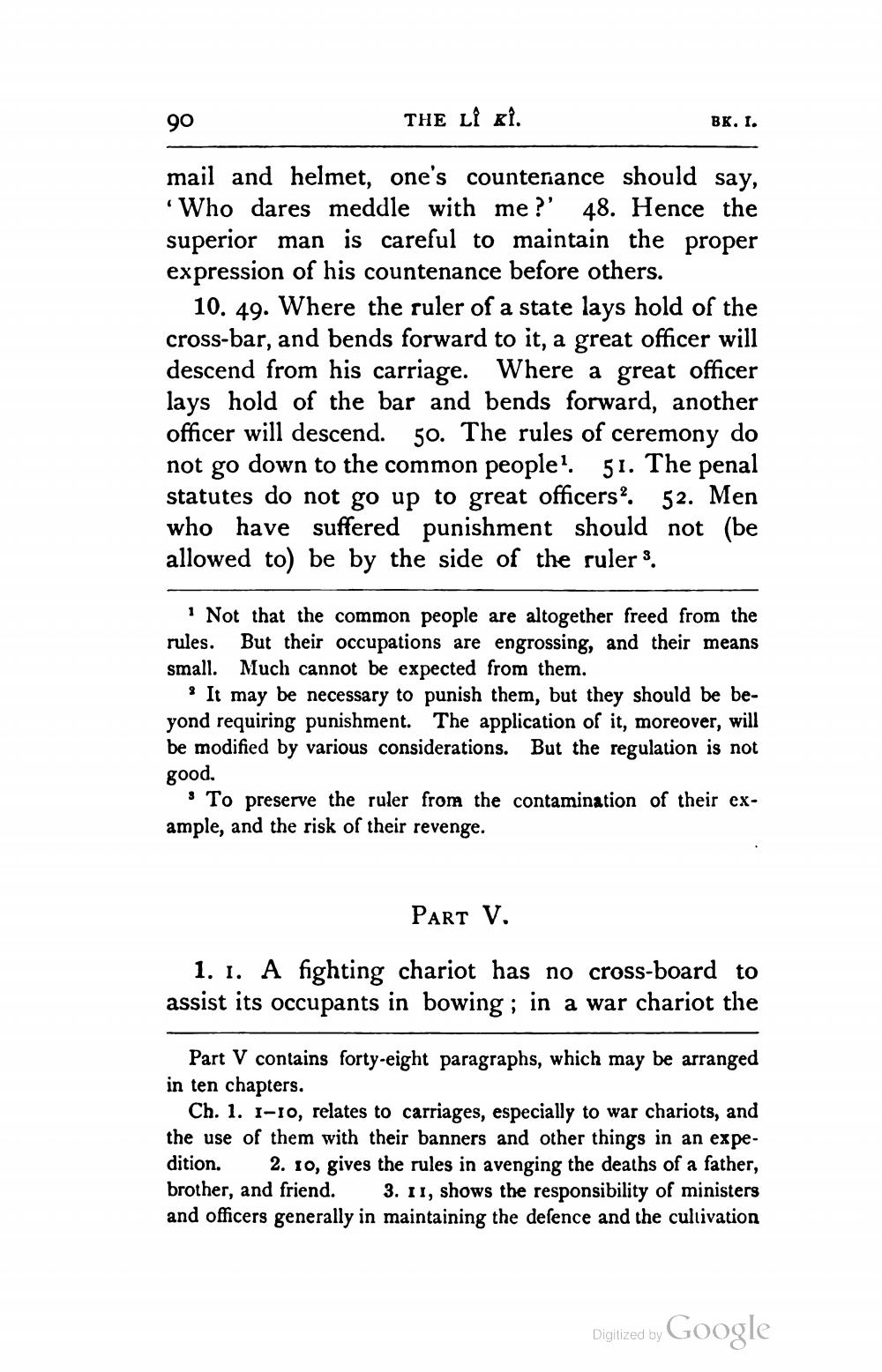________________
90
THE LÎ ri.
BK. I.
mail and helmet, one's counteriance should say,
Who dares meddle with me?' 48. Hence the superior man is careful to maintain the proper expression of his countenance before others.
10. 49. Where the ruler of a state lays hold of the cross-bar, and bends forward to it, a great officer will descend from his carriage. Where a great officer lays hold of the bar and bends forward, another officer will descend. 50. The rules of ceremony do not go down to the common people? 51. The penal statutes do not go up to great officers? 52. Men who have suffered punishment should not be allowed to) be by the side of the ruler 3.
Not that the common people are altogether freed from the rules. But their occupations are engrossing, and their means small. Much cannot be expected from them.
* It may be necessary to punish them, but they should be beyond requiring punishment. The application of it, moreover, will be modified by various considerations. But the regulation is not
good.
3 To preserve the ruler from the contamination of their example, and the risk of their revenge.
Part V.
1. 1. A fighting chariot has no cross-board to assist its occupants in bowing; in a war chariot the
Part V contains forty-eight paragraphs, which may be arranged in ten chapters.
Ch. 1. I-10, relates to carriages, especially to war chariots, and the use of them with their banners and other things in an expedition. 2. 10, gives the rules in avenging the deaths of a father, brother, and friend. 3. 11, shows the responsibility of ministers and officers generally in maintaining the defence and the cultivation
Digitized by Google




